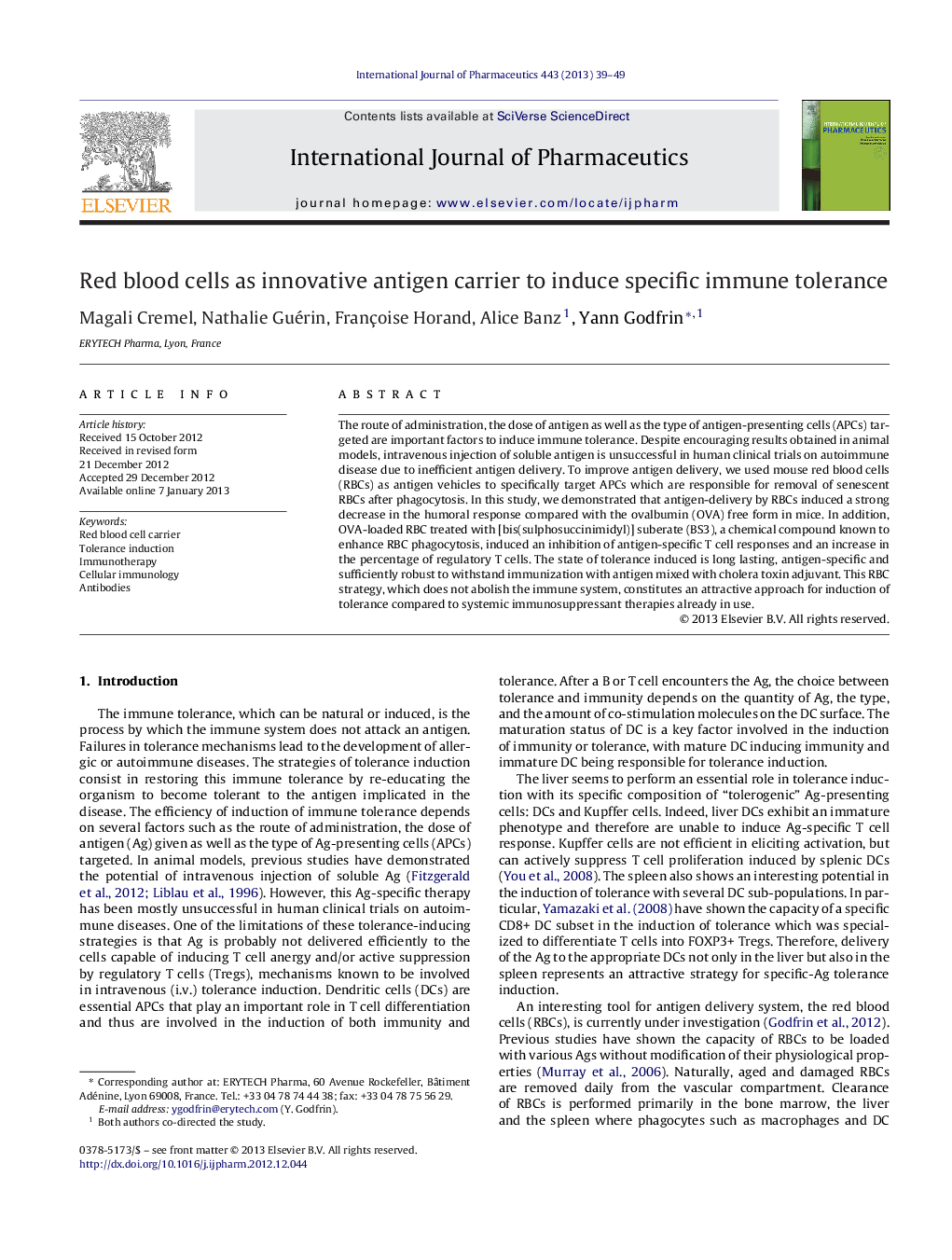| Article ID | Journal | Published Year | Pages | File Type |
|---|---|---|---|---|
| 2502598 | International Journal of Pharmaceutics | 2013 | 11 Pages |
The route of administration, the dose of antigen as well as the type of antigen-presenting cells (APCs) targeted are important factors to induce immune tolerance. Despite encouraging results obtained in animal models, intravenous injection of soluble antigen is unsuccessful in human clinical trials on autoimmune disease due to inefficient antigen delivery. To improve antigen delivery, we used mouse red blood cells (RBCs) as antigen vehicles to specifically target APCs which are responsible for removal of senescent RBCs after phagocytosis. In this study, we demonstrated that antigen-delivery by RBCs induced a strong decrease in the humoral response compared with the ovalbumin (OVA) free form in mice. In addition, OVA-loaded RBC treated with [bis(sulphosuccinimidyl)] suberate (BS3), a chemical compound known to enhance RBC phagocytosis, induced an inhibition of antigen-specific T cell responses and an increase in the percentage of regulatory T cells. The state of tolerance induced is long lasting, antigen-specific and sufficiently robust to withstand immunization with antigen mixed with cholera toxin adjuvant. This RBC strategy, which does not abolish the immune system, constitutes an attractive approach for induction of tolerance compared to systemic immunosuppressant therapies already in use.
Graphical abstractFigure optionsDownload full-size imageDownload high-quality image (156 K)Download as PowerPoint slide
